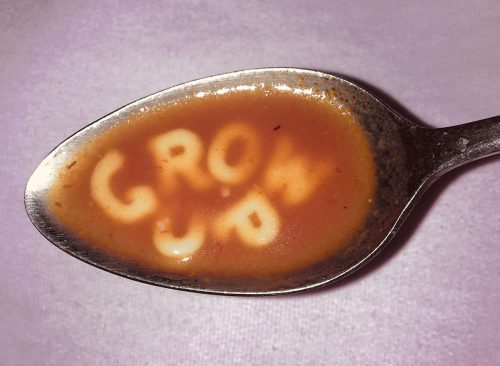12 Things Husbands Never Want to Hear, as “Emotional Flooding” Emphasized
Hurtful words can do serious damage to a marriage.

One of the best things about marriage is being so comfortable around your partner that you feel like you can completely be yourself and say anything, but words matter and can cause serious damage in the relationship. In a new article for CNBC, psychologists John and Julie Gottman, who have been married for 35 years and have studied over 40,000 couples, emphasize the importance of avoiding fights when emotionally flooded in order to have a successful relationship. Emotional flooding occurs when one feels overwhelmed psychologically and physically during a conflict, hindering productive communication. Signs of emotional flooding include increased heart rate, difficulty hearing the partner, racing thoughts, and the urge to say negative things or withdraw. They stress that the goal of a conflict is not to win, but to work through challenges together as a team.
Inspired by their piece, we reached out to other marriage experts. Marriage is a commitment between two people who have dedicated their lives to each other, but it’s also a lot of hard work. Communication is vital to maintaining a solid bond—that’s why we spoke to experts to reveal twelve things your husband never wants to hear. (We’ll do one for wives next week!)

While we all like to be right, throwing that in our husband’s face constantly will cause serious problems down the road, Ryan Sultán, MD is a Board-Certified Mental Health Physician, Director of Integrative Psych and Research Professor at Columbia University tells us.
“This phrase is often said in an attempt to be right or to show superiority after an argument or disagreement. It can come off as condescending or belittling. Over time, using ‘I told you so’ can erode respect and equality in a relationship. It might create a power imbalance and may cause your husband to feel belittled or devalued, which can lead to feelings of resentment.”

In the heat of the moment, it’s not easy to stay away from saying belittling or mean things, but Dr. Paul Hokemeyer, a licensed marriage and family therapist and author of Fragile Power: Why Having Everything Is Never Enough explains why telling your partner to “grow up and act like a man’ should always be avoided.
“For starters, it’s insulting to everyone on the gender spectrum. It implies men occupy a place of elevated position in the relationship, and they are failing to live up to it. It’s also insulting to females as it implies, they’re incapable of taking care of themselves and need a man to take care of them. Finally, it sets up a very hostile dynamic in the relationship where the husband will be compelled to consciously and unconsciously retaliate against the insult to their agency, place in the relationship, and the world.”

Telling your partner you want a divorce if you don’t really mean it can cause severe damage to the marriage. “Saying you want a divorce out of anger or frustration can destroy a marriage,” Jennifer Surak, LCSW Founder of JADE Psychotherapy, says. “Once we speak of the D-word, we have started a negative cycle in our marriage. We have allowed our marriage to become disposable. Saying divorce is a huge decision, and if we say it bc we are angry, we are minimizing the word as well as our marriage. Marriage needs to be held at the most respectful and sacred place. Choose your words as wisely as you chose your spouse.”
Alana McKenzie Page, dating and intimacy coach and author of The Art of Feminine Seduction, adds, “We’ve all been in the heat of the moment when it seems like the issue can’t be resolved except by the ultimate ending. But using the “D” word as a fighting tactic introduces deep instability into the relationship and may not get the response from your partner that you hoped for. Only discuss divorce when you are seriously considering it.”

Putting down your partner and saying he never does anything right will damage him emotionally, which will cause more issues down the road in the relationship Dennis Dearie, LMFT, a Licensed Marriage and Family Therapist at Healthy Life Recovery, says.
“This statement implies that your husband can never get anything right and is essentially worthless. It serves only to further damage your husband’s confidence and self-esteem, which will lead to problems in the marriage down the road. If you’re feeling frustrated about a specific situation or issue, it’s best to address it in an honest and respectful way without resorting to name-calling or insults. ‘Never‘ is a very absolute statement, and it can push your partner to feel like they will never reach your expectations.”

It may not seem like a big deal to tell your husband an issue doesn’t matter, but Page explains why it could lead to more significant problems.
“This is stonewalling, and it blocks intimacy. You’re hiding your feelings from him instead of sharing truthfully. If you do this consistently, you can both end up feeling like you don’t know the other person. You likely learned in early relationships that your opinion or feelings don’t matter or can get you in trouble, so you would rather shut them down than share them. You’ll end up feeling incredibly empowered and much closer to your husband if you can begin to listen to your wants and needs and share them with him.”

Bonnie Scott, therapist, and founder of Mindful Kindness Counseling, reveals why this phrase is problematic. “The classic convo I hear all the time in session:
Wife: ‘He doesn’t help around the house, and he doesn’t have initiative!’
Husband: ‘I never seem to do anything right, so I don’t do things around the house.’
Wife: ‘I mean, he doesn’t do things exactly like I like…’
Me: ‘Ok, you can get help, or you can do it yourself, but it’s not cool to critique things just to critique!’
“Constant criticism like that undermines the base of the relationship. It makes the criticized person defensive, which further erodes the quality of the relationship. Thank you is thank you, no buts.”

Nobody likes to hear their spouse tell them they’re stupid or feel put down, which is how this phrase can be taken. Daniel Rinaldi, therapist, life coach, and founder of Live Your F’N Life, says, “This is harmful to the marriage because it invalidates thoughts, emotions, and perspectives. This can then lead to resentful behavior and unhealthy communication. A better way to approach this would be with active listening skills(pay attention, no judgment, provide feedback, and respond in a healthy way). Lastly, valuing input from your partner even when it does not line up with your own thoughts.”

We are not mind readers, yet we often think our partners should just know how we’re thinking and feeling. Dr. David Helfand, PsyD, Licensed psychologist specializing in couples therapy retreats, neurofeedback, and brain mapping. tells us, “If you are expecting your partner to just know your state of mind, emotional needs, or other desires, then you are setting yourself up for failure. It’s important to express your thoughts and feelings. This is how intimacy is created in a relationship. If you want to have a deep emotional connection, share your emotions. Hoping that your husband will read your mind is setting up the marriage to fail, and ultimately it means you won’t get what you want.”

“Marriage is not a competition. The tit for tat will begin to erode the marriage and as you and your spouse begin to see each other on opposing sides,” says Christy Sutton, LMHC, NCC with Sustaining Grace Consulting. “The reason the couple married is often forgotten in the daily routine. Cherishing your spouse and viewing your spouse as a blessing builds a strong emotional bank account in reducing conflict,” Sutton adds.

“One of the most harmful things to say to your husband is being critical of him,” says Brenda Fahn, MFT. “This means that if you say anything that is attacking who they are as a person, instead of behaviors that you are requesting to change. Many times women will use a “nice” tone, but say something that is still critical and imply that their husbands are somehow failing them. Regardless of the tone, criticizing will almost always elicit a defensive response and can be deeply painful.”

“Statements like this often come from a place of hurt or fear, but they can seriously hurt your husband’s feelings,” explains Kalley Hartman, LMFT, the Clinical Director at Ocean Recovery. “It implies that he isn’t important to you, and it may lead him to feel unloved or unwanted in the relationship. Instead of saying things like this, make sure to show your husband how much you appreciate him and all he does for you.”

How we communicate with our partner matters. “When you are speaking to your significant other, the best way to communicate is by making ‘I’ statements and sticking to our own feelings and desires so we can avoid judgment and criticism,” says Jonathan W. Smith, LMFT Center for Family Wellness.
“This makes it easier for our partner to hear us and makes it less likely they will get defensive. We are also more likely to get what we want or convey our point effectively.”














